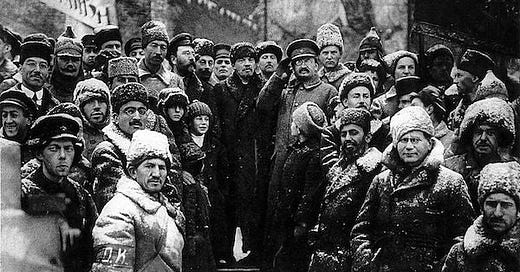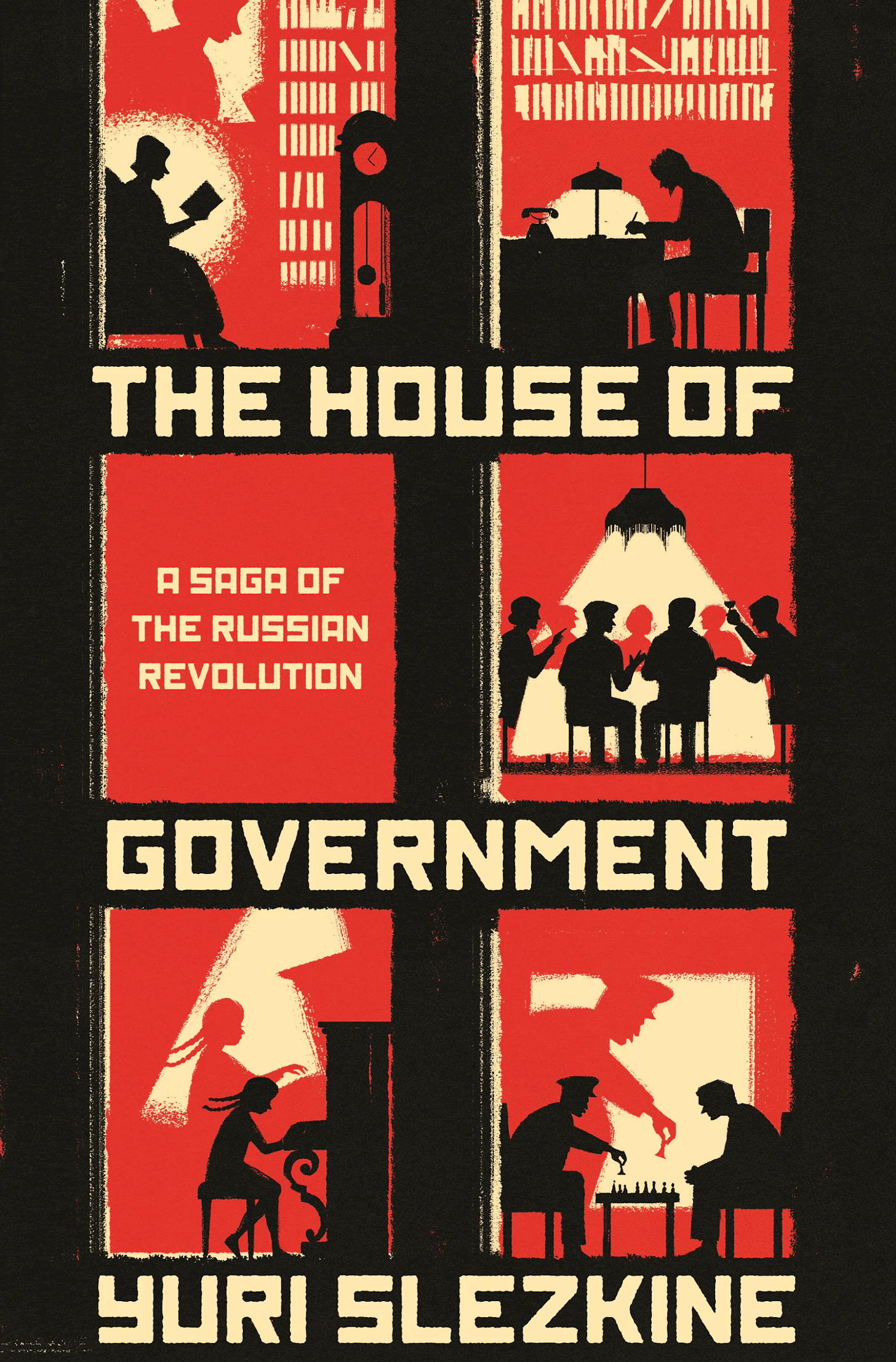Saturday Diversion: Soviet History
Comrades! Time to read up on the Soviet Union: Easy to hate, harder to understand.
I find Soviet history an endlessly fascinating subject and there is certainly no dearth of books covering virtually every aspect of that history. But some books are way, way better than others in getting to the essence of what made the Soviet Union tick and helping us understand the flesh-and-blood people who brought it into being.
Herewith my selection of the best books to bring you into that world and give you a least a faint glimmering of how that world worked.
The House of Government: A Saga of the Russian Revolution by Yuri Slezkine. I plugged this book on Ezra Klein’s podcast. Here’s what I said:
I’m a bit of an evangelist for this book. It’s called The House Of Government by Yuri Slezkine. And it’s an incredible, brilliant book...The ‘house of government’ was the big house built on the embankment near the Kremlin where all the apparatchiks lived in the ‘30s under Stalin. But what the book does is, it’s this panorama of oral history, of architectural studies, of literary analysis, of memoirs, of incredible stuff just that paints this portrait of how the Soviet Union came into being. Who were these people who made this happen? What did they think? How did it affect the way they did everything, from their views of art and literature to their views of politics to their personal relationships with each other? I just can’t recommend this book highly enough… It’s 1,000 pages, but I consider it one of the most brilliant books I’ve ever read. And I would almost go so far as to say, you can’t really understand the Soviet Union until you’ve read this book.
I stand by every word of that.
A People's Tragedy: The Russian Revolution: 1891-1924 by Orlando Figes. The best one volume history I have read on how the revolution actually came about. Very good on the roots of the revolution in a rapidly changing Russian social structure and culture. It wasn’t just a bunch of bad ideas (though bad they were!) A fine companion to Slezkine (or if you prefer, Slezkine is a fine companion to this one). See also: The Whisperers: Private Life in Stalin's Russia by Figes. What was private life like for ordinary Soviet citizens in the Stalin era? Tricky, very tricky! Figes’ vivid portraits of the everyday bring that home.
Russia: Revolution and Civil War, 1917-1921 by Antony Beevor. The incredible brutality of the Russian Civil War is difficult to fully comprehend and had a huge effect on the evolution of the Bolshevik regime. Beevor’s book is a great place to start to get a feel for the epic scale of the struggle—a struggle that defined the revolutionary regime more than the revolution itself. See also: Stalingrad: The Fateful Siege: 1942-1943 by Beevor. The best single volume treatment of perhaps the most important battle of the 20th century. Heroic, terrible, mind-blowing, cataclysmic. It was all that and more.
Life and Fate by Vasily Grossman. One of the great novels of the 20th century and the great novel of the Stalin era in the Soviet Union. Grossman was a Russian writer and war correspondent who somehow survived the Stalin era but truly saw it all and poured his experiences into this book. He conveys in unsentimental terms how ordinary Soviet people kept on living even as daily life presented one horrific obstacle after another. Not published until after Grossman was dead. This book is not for the faint of heart but it will sear you soul. See also: Stalingrad by Grossman. The prequel to Life and Fate; not quite as great as Life and Fate but still pretty great. There is a lot of character continuity between the two books. In a sense, the two together are one vast 2,000 page novel. Fun!
Kolyma Stories by Varlam Shalamov. This volume contains some of the most brilliant short stories of the 20th century. Varlam Shalamov was a Soviet writer who spent 15 years in the gulag, including in the notorious Kolyma camp in the Russian Far East where “12 months were winter and all the rest summer.” He lived and wrote these spare stories which glitter like diamonds—read them! See also: Sketches of the Criminal World: Further Kolyma Stories by Shalamov. More stories from the depths of gulag hell. That anyone at all survived is amazing.
Bonus Books:
Stalin and His Hangmen: The Tyrant and Those Who Killed for Him by Donald Rayfield. How the killers killed. Wrenching.
Memoirs of a Revolutionary and The Case of Comrade Tulayev by Victor Serge. One of the most astonishing characters of the 20th century whose life was beyond adventurous. Not Russian, he joined the revolution from the outside and was witness to its stark deterioration from Kronstadt through the rise of Stalin and subsequent repression. This memoir and this novel give you a sense of how the Soviet Union’s evolution was processed by an intransigent and committed revolutionary. Plus he was a brilliant writer.
The Trotsky trilogy (The Prophet Armed, The Prophet Unarmed, and The Prophet Outcast) by Isaac Deutscher. Deutscher was in the tank for Trotsky but wow, what a man and what a life! Beautifully written and well worth reading whatever your priors about Trotsky.
Out of the Night by Jan Valtin. What was it like to be a Comintern operative? I thought you’d never ask! Valtin (real name Richard Krebs) was a German revolutionary who became a key Comintern operative and somehow survived the ‘30s purges, living to tell the tale. And what a tale! His memoir was slagged by the Communists and fellow travelers as a Nazi plant when originally published in 1941 but it now appears that Valtin’s tale was mostly true. Prepare to be astonished.
This should give all good comrades something to chew on. And yes, there will be a quiz!






Excellent choices, although I would add Stephen Kotkin's Stalin biography (two volumes in print, the third forthcoming) and drop Figges as he has been shown to be a fabricator and plagiarist by Rachel Polonsky (full disclosure: her husband is a friend and she has given me autographed copies of her books). He also published anonymous derogatory reviews of his rivals on Amazon. Figges ended up paying a substantial court settlement for his misdeeds. https://www.theguardian.com/books/2010/apr/23/historian-orlando-figes-amazon-reviews-rivals